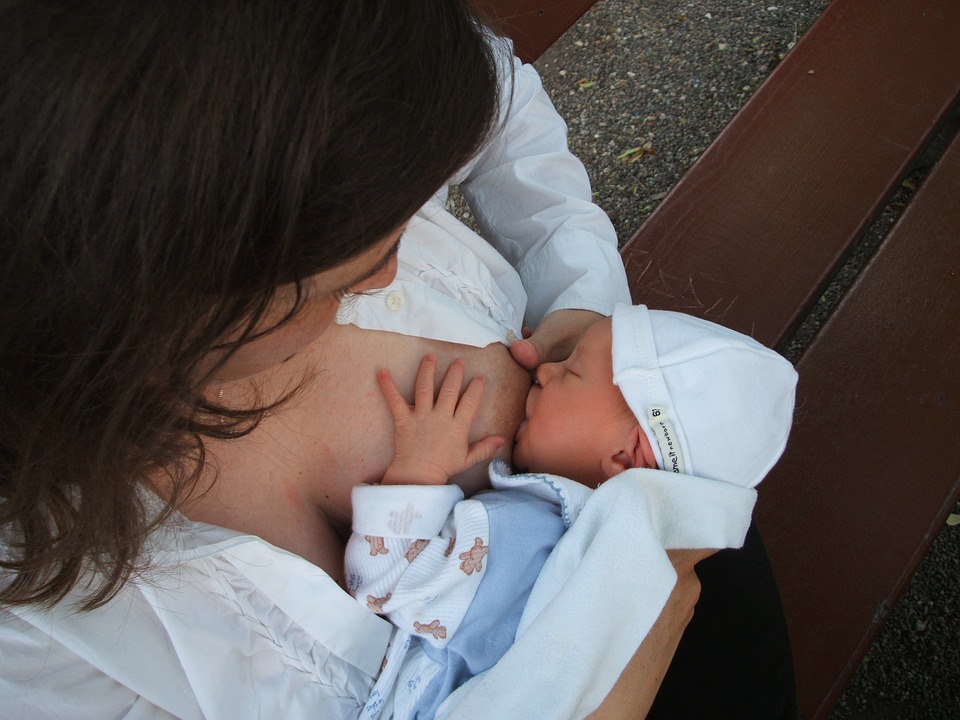
Table of Contents
How to Lose Weight While Breastfeeding
It’s easy for new moms to feel the pressure to lose weight once they’ve had their babies.
While it’s healthy to start losing your baby weight while breastfeeding, it’s important to pace yourself.
Remember that you took 9 months to put on that weight, so plan for around 9 months to lose it again.
The good news is that, if you’ve chosen to breastfeed, you’ll not only be giving your baby the healthiest start in life, you’re also giving your post-partum body a head start for getting into shape: breastfeeding itself burns around 200–500 calories per day.
DOs and DON’Ts for losing weight while nursing your baby
- DO stick to healthy foods: This is a time in both you and your baby’s life when you need every bit of nutrition you can get. Avoid processed foods which contain sugar and unhealthy fats. Your body burns through refined carbohydrates like sugar and white flour very quickly, and you will feel hungry sooner than you would have after eating a meal rich in protein and healthy fat. A balanced diet rich in whole foods will keep you feeling satisfied for longer between meals, as well as providing you and your baby with the vitamins, minerals and other nutrients you need.
- DO prepare in advance: It can be tough to stick with whole, unprocessed foods for every meal. New moms are busy and if you don’t have healthy snacks prepared, it is all too easy to reach for a quick packet of cookies just to keep you going. Go grocery shopping and stock up on low-effort, healthy snacks which you can munch later. Nuts, fruit and veggies can all be eaten raw and with minimal preparation. If that sounds boring, find substitutes for your favorite foods. Exchange white bread for a whole grain loaf, sugar-laden breakfast cereal can be replaced with oatmeal and honey, and recipes for healthy deserts abound online these days.
- DON’T restrict calories: While it may be tempting to go on a ‘diet’ and cut your calories way down, creating milk demands a lot of energy from your body. In order to stay healthy, you will need to consume around 500 calories more than you did pre-birth, just to get the nutrition and energy you need to sustain milk production. If you’re not getting enough calories, you body will sacrifice non-essential processes in order to feed your baby enough milk. Over time, this can really affect your health.
- DO stay hydrated: Breast milk is 50% water, so staying hydrated in a priority. So many of us live in a state of chronic dehydration and the sensation of thirst is often mistaken for hunger. Drink plenty of water to avoid confusing you body’s signals and consuming more calories than you need. Water will also give you a full feeling in your stomach so you will likely end up eating less.
- DON’T try fad diets or lose weight too quickly: Fad diets can be risky at the best of times, but shouldn’t be tried when you’re breastfeeding. Many cleanses and fad diets restrict calories, omit certain types of nutrients and can generally be a shock for your body. This can have unexpected effects on the quality and quantity of you milk, and can put your body under excessive stress when it’s already trying to cope with the stress of childbirth and motherhood! Losing weight too quickly can also release toxins stored in your fat cells into your bloodstream, and this eventually makes it into your milk.
- DON’T start too soon: Don’t actively try to lose weight until around 6-8 weeks after giving birth. Your body needs time to adapt to its new post-partum state.
- DO exercise in moderation: Moderate exercise will start to get you active again and help with weight loss. It can also give new mothers a reason to get out of the house and a sense of wellbeing. Feel free to take your baby along for the ride with you by taking him or her for a nice brisk walk outside. Over-exercising can reduce milk production so start with en easygoing workout and gradually increase the intensity as you feel comfortable.
- DO get plenty of rest: We all know that being a new parent can be exhausting, but lack of sleep can really affect our metabolism. When tired, we tend to crave sugary foods to give us a quick burst of energy but which will leave us more exhausted in the long run. Try to sleep when your baby sleeps and nap during the day if possible, to keep yourself rested and in control of your eating.
- DON’T compare yourself to others: Faced with stories of how celebrities like Gwyneth Paltrow and Penelope Cruz managed to get their bikini bodies back within mere weeks of giving birth, a lot of women understandably feel anxious about losing their baby weight. Such quick weight loss is seldom realistic, however, and those celebrities may actually be doing more harm than good to themselves and their babies. Everyone’s body is different, and we all lose weight according to our own individual body rhythms.
Above all, DO listen to your body. Hunger is your body telling you that it needs fuel, and many cravings are actually your body’s way of telling you what nutrient you need more of. Don’t be afraid to snack or eat extra smaller meals in one day, just keep your choices healthy. Natural, whole foods typically keep you feeling full without overdoing it in calories or portion size. Incorporate moderate exercise and high-nutrition foods for a healthy, gradual weight loss. 1-2 pounds per week is a healthy rate of weight loss for breastfeeding mothers.
